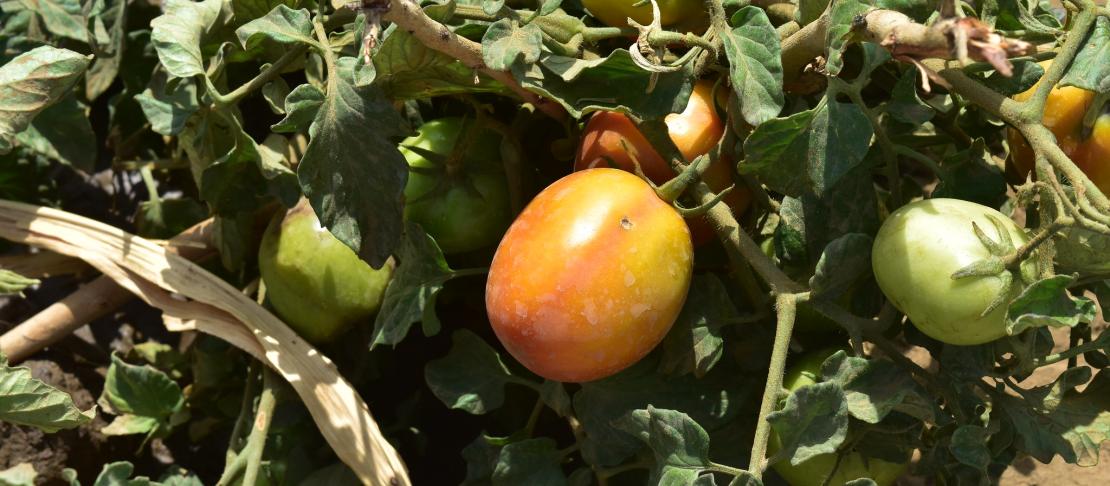Food System Adaptation in Changing Environments in Africa (FACE-Africa)

Food System Adaptation in Changing Environments in Africa | FACE Africa
Project description
Climate change exacerbates undernutrition mainly through the following causal pathways: (1) impacts on household access to sufficient, safe and adequate food; (2) impacts on care and feeding practices; and (3) impacts on environmental health and access to health services. Therefore, in addition to securing food, climate-smart agriculture (CSA) activities should aim to increase the demand for and understanding of nutritious diets. It should also facilitate the adoption of adaptive technologies to help boost agricultural income for nutrition, health, and education.
A new partnership of the CGIAR Research Program on Climate Change, Agriculture and Food Security (CCAFS) in West Africa with the London School of Hygiene and Tropical Medicine (LSHTM) is aiming to promote nutrition and health-focused research through a newly funded project on Food System Adaptation in Changing Environments in Africa (FACE-Africa).
The overall aims of the FACE Africa project are to: (1) develop tools to identify, synthesize and quantify the impact that tested adaptations in food systems will have on food availability, diversity and equality of access in climate vulnerable countries in Africa; and (2) assess the capacity of food systems in climate vulnerable countries to deliver healthy and sustainable diets by 2030. The project will include The Gambia as a case study to develop methods for similar analyses in other African countries.
Activities
- Analysis of the national-level data from publicly available sources
- Mapping and evidence synthesis of climate change adaptations identified in the ongoing CCAFS Climate-Smart Villages (CSV) approach
- Exploration of inequalities in the food system by bringing together sub-national data on nutrition and health previously collected from various sites by the Medical Research Council (MRC) in The Gambia and Cambridge
- Development of methods to quantify population nutritional status and health under business-as-usual (BAU) scenarios for 2030
- Stratification of the Gambian population into “consumption strata” based on dietary analysis conducted as part of outcome 1
- Comparison of future food system projections
- Use of mixed methods to identify future climate change adaptation scenarios, and their impact on nutritional and population health
Expected outcomes
- The food system in The Gambia along with its major trends and drivers, are characterized and synthesized;
- Evidence of past and current adaptations to climate change in food systems in The Gambia/West-Africa is mapped;
- A novel method to use national, regional, and local secondary datasets to parameterize and downscale existing environment / agriculture / nutrition and health models to provide estimates of the impacts of future food systems on population health by 2030, including The Gambia as a case study, is developed
- Alternative food system scenarios for 2030 based on climate adaptations already being considered for implementation in The Gambia are explored. Furthermore, opportunities through outcome 1 and outcome 2 are identified, and their impact on all-cause mortality/years of lost lives and all forms of malnutrition are estimated
CCAFS and the International Institute for Applied Systems Analysis (IIASA) will develop new scenarios and use previously developed Economic Community of West African States (ECOWAS) scenarios for West Africa that will be parameterized and downscaled for The Gambia.
Partners
- International Institute for Applied Systems Analysis (IIASA)
- The London School of Hygiene & Tropical Medicine (LSHTM)
- Medical Research Council (MRC)
- University of Cambridge
- CCAFS
More information
For more information, please contact Dr. Robert, Zougmoré, CCAFS/ICRISAT (r.zougmore@cgiar.org), Dr Pauline Scheelbeek, The London School of Hygiene & Tropical Medicine (Pauline.Scheelbeek@lshtm.ac.uk) and Rosemary Green, The London School of Hygiene & Tropical Medicine (Rosemary.Green@LSHTM.ac.uk).
Funding for this project is provided by:
